|
Dear Brothers and Sisters in Christ,
In preparation for the upcoming provincial election, the Catholic Bishops of Alberta wish to encourage all members of the Church to engage in the electoral process. By means of this letter, we offer to our Catholic faithful a reminder of important principles and concerns, which stem from the social doctrine of the Church, to guide the discernment of choices that accord with the Gospel’s vision for the right ordering of society.
Please join with us in prayer for those elected to public office. They are assuming a heavy responsibility, often at great personal sacrifice. May they be granted the strength and wisdom to govern in accord with the precept of charity in service of the life and well-being of everyone. Yours sincerely in Christ, Catholic Bishops of Alberta Most Reverend Richard W. Smith, Archbishop of Edmonton Most Reverend William McGrattan, Bishop of Calgary Most Reverend Gary Franken, Bishop of St. Paul Most Reverend Gerard Pettipas CSsR, Archbishop of Grouard-McLennan Most Reverend David Motiuk, Bishop of the Ukrainian Eparchy of Edmonton
1 Comment
Our lifestyle and choices affect other people and the environment. We do not live in isolation even when we think that we are making private, personal, and individual acts or decisions that do not involve others. Our action and inaction have consequences on others and the world around us. As consumers in today’s world, it can be overwhelming to make purchasing decisions that have less of a negative impact on others and the environment, as it is not as simple as it seems. For example, not all recyclables are the same. Not everything labeled as “made from recyclable materials” is actually 100% made from recyclable materials as these materials degrade in quality over time. And just because it’s recyclable doesn’t mean it’s actually being recycled especially when these products do not make their way to the recycling facilities. Recycling materials also require so much energy to process that reusing might be a better alternative to recycling. Our heads spin… we can easily burn out and give up. In order to make good and responsible choices that support our lifestyle, it is beneficial to understand the concept of circular economy. Watch this six-minute video and learn to see beyond the products as you understand their life cycle and their impact on people and the environment. Consider this…
The ecumenical Season of Creation is observed annually from September 1, the World Day of Prayer for Creation, to October 4, the Memorial of Saint Francis of Assisi. Christians and peoples of faith around the world are invited to pray in thanksgiving for God’s gift of creation. This year, the Season of Creation occurs in the midst of the COVID-19 pandemic that is impacting worldwide in ways that are inextricably interconnected to the care of creation and the health of humanity. The Encyclical Letter, Laudato Si, echoes this interconnection. “Everything is connected. Concern for the environment thus needs to be joined to a sincere love for our fellow human beings and an unwavering commitment to resolving the problems of society.” – Laudato Si, No. 91. In March of this year Pope Francis asked the Dicastery for Promoting Integral Human Development (“DPIHD”) to collaboratively create a Commission to communicate the Church’s concern for the human family facing the COVID-19 coronavirus pandemic, to reflect on the emerging socio-economic-cultural dynamics, and to research and propose timely approaches to move forward. In May, I was invited to be one of twenty participants from Canada and the United States to provide feedback to this newly formed Commission. The Dicastery has now established a Vatican COVID-19 Commission with five Work Groups:
In this time of pandemic, we are admittedly being challenged and yet history reveals that it is often in such times of adversity that the resiliency and determination of the human spirit emerges and through God’s grace, people of faith accomplish good works. In that spirit of confidence and hope, Pope Francis’ message reflects upon the theme for the 2020 Season of Creation, Jubilee for the Earth, as a time to remember, to return, to rest, to restore and to rejoice:
If these initiatives aren’t enough, we also have in this Season of Creation two events in late September and one in early October that call us to action, to conversion and renewal through the understanding and application of our Catholic Social Teaching. The first is the World Day of Migrants and Refugees. Pope Francis’ message for the 106th World Day of Migrants and Refugees, Forced like Jesus Christ to flee draws attention to the burdens faced by migrants and refugees and the responsibility to provide refuge. He states, “I have decided to devote this Message to the drama of internally displaced persons, an often unseen tragedy that the global crisis caused by the COVID-19 pandemic has only exacerbated. In fact, due to its virulence, severity and geographical extent, this crisis has impacted on many other humanitarian emergencies that affect millions of people, which has relegated to the bottom of national political agendas those urgent international efforts essential to saving lives. But “this is not a time for forgetfulness. The crisis we are facing should not make us forget the many other crises that bring suffering to so many people.” The second is the release of an Alberta Bishop’s Pastoral Statement on the Impact of COVID-19 and the Call to Christian Renewal on the Feast of the Exaltation of the Cross. It is entitled “Save your people, O Lord, and bless your inheritance”. There are reflections and resources that accompany the statement which are designed to promote dialogue on the social justice issues that have surfaced during the pandemic in light of the principles of our Catholic Social Teaching. The third event is the publication on the eve of the Memorial of Saint Francis of Assisi of a new encyclical which will reflect upon the Catholic Social Teachings during the pandemic – teachings such as human fraternity, the equal dignity of all people, the preferential option for the poor, the common good, solidarity among all peoples, the responsible care of the environment, and the virtue of striving for justice and peace. Now more than ever we need to relate to one another as sisters and brothers in one global human family. We are called to recognize the responsibilities we have to each other, and take an active role in helping each person achieve their full potential. And in this Season of Creation, we are being called to live as responsible stewards of creation and thus to see the reflection of God in all of creation. God of love, show us our place in this world as channels of your love for all the creatures of this earth, for not one of them is forgotten in your sight. Enlighten those who possess power and money that they may avoid the sin of indifference, that they may love the common good, advance the weak, and care for this world in which we live. The poor and the earth are crying out. O Lord, seize us with your power and light, help us to protect all life, to prepare for a better future, for the coming of your Kingdom of justice, peace, love and beauty. Praise be to you! Amen. (Pope Francis, Laudato Si, May 24, 2015) One of Calgary’s newest vegetable gardens is located in the backyard of Elizabeth House (EH), a maternal care home that’s now growing ready-to-eat plants alongside healthy babies. In a world hungry for good news, this project fits the bill, says Michelle Haywood, program manager at Elizabeth House. Opened by the Catholic Diocese of Calgary more than 20 years ago, Elizabeth House provides supportive housing to at-risk pregnant and parenting women who need a safe place to live. Seeded into two new raised beds, this year’s inaugural garden is busy growing everything from lettuce to tomatoes, carrots and squash. It’s also nurturing at least one young resident’s interest in vegetable production—and it all began with a group of Catholic men who dared ask the folks at EH a simple question: How can we help? The raised beds, like every other landscape revitalization project undertaken at Elizabeth House since 2017, were built by the St. Peter’s Council of the Knights of Columbus. That’s the year the council’s Grand Knight Peter Dugandzic reached out to Haywood. That conversation laid the foundation of a relationship that’s flourished over four years, thousands of dollars and hundreds of volunteer hours. “What the Knights have done here is amazing, but it’s about more than landscaping,” notes Haywood. “There’s also a sense of being cared for by this group of gentlemen offering their hands and hearts to help us. It’s hard to put that kind of support into words.” Love in action By 2018, Dugandzic was leading a group of Knights of Columbus in some serious hands-on work. Together, the men transformed the home’s weed-filled backyard into a summer oasis, complete with new sod and a new patio, outdoor furniture, a barbecue, perimeter shrub beds and an underground sprinkler. That same year, another council based in Airdrie provided the labour to re-side EH’s home and detached garage. Last year, the Knights tackled the home’s front yard, again adding fresh sod, shrubs and irrigation. “Everybody was pretty excited when Peter brought the idea to the council,” remembers Lu Scarpino. Sworn in as the Grand Knight at St. Peter’s this July, Scarpino was the council treasurer when the project began. “Elizabeth House is doing great work and it’s nice to be able to support that. I think we’ve built a relationship that will continue for many years,” adds Scarpino. Fr. Jonathan Gibson agrees. The pastor at St. Peter’s parish, Fr. Gibson says the relationship between the knights and Elizabeth House reinforces the governing principles of the Knights of Columbus. Charity, unity, fraternity and patriotism have all been strengthened by the project, says the priest. He views the relationship between the Knights of Columbus and Elizabeth House as a real-world example of how these knights live the heart of the gospel by doing work that cares for the women and children who live at Elizabeth House. With the vegetable garden beds built and seeded, Dugandzic and Haywood are now focused on relocating a grotto built on the grounds of the original EH site in the Mission district. The stone work will be done by the same skilled tradesmen who built the grotto and one at the new Our Lady of the Rockies church in Canmore. The statue of Mary is being repainted by Dugandzic’s wife, Dorothy Voytechek. The new grotto will include a glass panel to protect the statue from the elements. The grotto will be added to the backyard; already a place of refuge for residents, their children and EH staff, says Haywood. Given the complications of COVID-19, she knows the Knights at St. Peter’s didn’t have their usual opportunities to fundraise in 2020. That means some of the costs incurred were covered by individual knights and their families. Dugandzic, who’s already working with Elizabeth House on projects for 2021, says he launched the EH project as a way to invigorate the Knights he led. Looking back, he admits the project’s success goes way beyond the physical spaces they created. “Elizabeth House is dear to our hearts. We like the work that they do. That house is nearly always full and it feels good to know our knights have helped make it an even more special place.” Written by Joy Gregory for Faithfully
Written by Christina Candra, a parishioner of St. Joseph's Parish in Calgary.
If the last several months have reinforced anything, it is the extraordinary grace of an ordinary moment lived well. Faced with an abrupt “stripping away” of the extras that made life very full, our little family has had to work hard to claim, in simplicity and joy, the identity of domestic church. It has been challenging and edifying to see the ordinary, mundane moments through the lens of faith. In the slowing down, we are becoming more aware of the opportunity these moments present to us. We have come to understand more deeply the invitation to elevate them and give glory to God through them. We hunger and thirst for Christ in the Eucharist, for the community life of our parish, for song, and the opportunity to embrace our friends. Yet this hunger has also made all the more clear to me that my little family is the microcosm of that greater Church reality! We are the image of Trinitarian love to the world, through our faithful and fruitful love for each other. As St. John Paul the Great reminds us in Familiaris Consortio, “...the family has the mission to guard, reveal and communicate love, and this is a living reflection of and a real sharing in God's love for humanity and the love of Christ the Lord for the Church His bride.” And so we seek ways to tangibly image His love to our children, and through them to those around us. It is incredible how ordinary realities can become imbued with incredible spiritual symbolism. Take, for instance, a picnic! With four small children there is nothing perfect about the planning, preparing, and living out of a picnic adventure! There is mess, there are spills, there are little hands fumbling at sandwich making and mommy working very hard to keep her patience, while daddy sweats to load enough supplies in the car for what seems like a month’s trip. There is immense effort in the instruction, between the extra time everything takes and the imperfection of the end result. Truly, my humanity rebels a little against the effort when it could be done so quickly and neatly by only me! However, I know that this is a perfect moment of learning in the schools of service and forgiveness. Inevitably I will slip in my patience once or twice as we prepare our food or load it all up. I apologize and ask for forgiveness, and they willingly grant it. I have come to realize that family life is made all the more vibrant by the ready asking for and granting of forgiveness. Certainly, the outcome of our preparations will be rustic. Yet, I am convinced that we have no idea how these moments of family unity, service to each other, and joyful celebration imprint themselves as bookmarks of joy on our children’s little souls. Every good picnic begins with the preparation. As we plan what we will bring and how we will prepare it, we look to both simplicity and beauty. We pause to admire the vibrant red of a strawberry, the perfection of the inside of our watermelon, or even the gorgeous seedy crust on a loaf of bread. I say out loud, “thank you Lord for the gift of this beautiful food!”. In that moment our children are formed in the habit of gratefully walking through the day communicating with their Creator. We remind them often that grateful people are joyful people. Is there a more beautiful reflection of God’s love to the world than our joy? Possibly not! Even more profoundly, we can recall that the word Eucharist comes from the greek, eucharisteo, or thanksgiving! In this way our simple, thankful, picnic preparations remind us of the Bread of Life. The time comes to enjoy the fruit of our labour. With our feet in the earth and our lungs filled with healing air, again we give thanks for beauty so tangible as to point our hearts directly to the Giver of all these good gifts. While we enjoy our simple picnic meal together, my husband and I meet each other’s gaze. We do not need to use words to communicate to each other that we are rejoicing in this sacred moment. Our sweet children, noticing that gaze, feel safe and sound in our family’s love. Their little hearts know, despite the chaos that may be in the world around us, that life is very good and we are held by Love. This is the extraordinary grace of an ordinary moment lived well. Written by Emily Packard for Faithfully. Emily and her family are parishioners of St. Patrick's Parish in Calgary.
Photos courtesy of Emily Packard
Written by Emily Rochford. The Rochford family are parishioners of Sacred Heart Parish in Strathmore, AB.
Vertical Divider
With climate change getting so much media coverage, it’s easy to see why some Catholics are asking questions about what they can do to support the papal call for Christians to unite in caring for what Pope Francis calls, “our common home.” Other Catholics don’t spend much time thinking about it. They’re too busy planting, weeding and harvesting food, flowers—and faith. This summer, volunteers planted a 3,000-square-foot vegetable garden at the Mount St. Francis Retreat Centre at Cochrane. The potatoes, carrots, squash and swiss chard were put to good use; the food is shared between Feed the Hungry’s (FTH) Sunday dinners at St. Mary’s Cathedral and the Calgary Food Bank. “The food bank really is a ‘bank,” says Linnea Ferguson, program lead for the Calgary Catholic Diocese’s FTH program. “We take from that bank for our Sunday night dinners, so it’s nice to deposit some food there, too.” Although FTH is more closely aligned with social versus environmental causes, the connection between food and life is obvious, notes Ferguson. “By actively participating in the production of local produce, I think Feed the Hungry shows care for our common home and how much we respect the dignity of the people we feed.” Care for Creation Over at St. Joseph’s parish in northwest Calgary, parish council has adopted some care for creation initiatives sparked by the 2015 papal encyclical, Laudato Si: On Care for Our Common Home. This spring, Knights of Columbus planted a courtyard area with plants donated by a long-time parishioner. “It’s really beautiful,” says parish council member Marilou LeGeyt. “We’ve got a variety of flowering plants, including roses, monkshood and black-eyed Susan. Next year, the Knights will divide those plants and sell the extras as a fundraiser.” After all the planning and planting were done, the project yielded three wins for the parish. The garden is a fundraiser, a beautiful space by the Church entrance and its gives parishioners an opportunity to take an ecological piece of their church community home to their own gardens. In late September, the courtyard hosted a Blessing of the Animals. The event attracted dogs, fish, cats and turtles! In line with Laudato Si and its focus on dialogue, St. Joseph’s parish is also exploring the addition of a vegetable garden on the church property. The concept is meant to nourish St. Joe’s place in the wider community, says LeGeyt. At St. Peter’s parish, a team of volunteer gardeners is taking responsibility for the gardens built as part of a major reconstruction project. Led by parishioner Sylvie Fung, who’s also active with the Society of St. Vincent de Paul, the grounds include several well-kept flower pots, ground-level plots and a new grotto. The latter includes an outdoor rosary. To help the growing number of faithful who visit the space to pray, Fung tucks several rosaries and prayer cards into two solar lamps at the garden entrance. “People take the rosaries, so I’m always looking for more,” says Fung. Members of her garden team take turns watering the pots and checking to make sure the freshly-landscaped shrubs and perennials are doing well. But the job can get a little prickly. While the space between the church and alley has been beautifully landscaped, these beds include a number of Canada Thistle, an invasive (not Canadian!) weed species known for its thorns and deep roots, both of which complicate eradication. Fung encourages her fellow gardeners to weed these “beds of thorns, beds of suffering” as an act of faithful sacrifice. “It’s the perfect job to recite the Chaplet of Divine Mercy,” says Fung with a smile. Written by Joy Gregory for Faithfully
Many are internally displaced or flee to neighbouring countries such as Lebanon and Jordan. Some, Syrians in particular, have settled in parts of Canada, including Calgary, but for those who stay or have gone back, their homes are often destroyed and require a lot of rebuilding. “Sometimes people don’t feel safe moving back to their town,” said Gabriel. “There have been cases of kidnapping, harrassment, discrimination. There have been times that they’ve been killed because of their faith.” Due to difficulties crossing check points, Palestinian Christians aren’t always granted a pass to attend Easter Mass in Jerusalem. “The locals can’t experience Easter there, but the tourists have no problem,” said Gabriel. She organizes pilgrimages with CNEWA to the Holy Land for those wanting both a spiritual experience and a snapshot into the life of local Christians. The next one is being planned for 2020. “The Christians are always very grateful when we come and visit them. They feel supported,” said Gabriel. In August, Gabriel spoke at the national Catholic Women’s League (CWL) Convention held in Calgary because CNEWA is one of the charities CWL supports at the national level. Two of the projects CWL funds are a centre in Jerusalem that provides tutoring for at-risk youth and a centre near Bethlehem providing healthcare for women and their babies. National CWL President Anne-Marie Gorman went on a pilgrimage to the Holy Land and met some of the local Christians, including entrepreneurs who left to seek education in the United States, but returned to open a brewery. “Things seem to be so unstable, so I’m thinking if they have enough faith to go home and settle back in the Palestinian occupied territory, it behooves us to support them as best we can,” said Gorman. “Our past spiritual adviser Bishop Martin Currie said the Holy Land is in danger of becoming like Disneyland, just a tourist site that people go see what it used to be like. But when I was there, it was all about these people being living stones. These are the people that haven’t left.” St. Bonaventure parishioner Kathleen Kufeldt is one of many Calgarian donors who financially support CNEWA. For several years she has organized a raffle at her parish for CNEWA during the annual CWL fundraiser. “I think we are so blessed here to practice our faith. My heart goes out to the Christians in the Middle East,” said Kufeldt. “I feel it must be one of Jesus’s wounds that the area where He was born and grew up is so difficult for His followers.” Written by Sara Francis for Faithfully
Nearly 900 Catholic Women’s League (CWL) members from across Canada gathered at the Hyatt Hotel in Calgary Aug. 18-21 for the 99th Annual National Convention. Each year members debate and vote on resolutions, forming League policy and guiding their advocacy work. The CWL members passed two resolutions concerning the rights of the unborn and a nuclear arms ban. The first resolution to pass was — Canada to Honour its Commitment to the United Nations Convention on the Rights of the Child. Canada ratified this United Nations agreement to protect the unborn 20 years ago, yet there is still no Canadian legislation protecting the unborn at any stage of development. “When you sign something and ratify it, you’d expect some legislation to appear,” said CWL President Anne-Marie Gorman. “What we are looking for is legislation. You said you were going to do it, so why hasn’t someone done it. We’ll be asking that question.” The second resolution to pass asks the Canadian Government to honour the United Nations Treaty on the Prohibition of Nuclear Weapons. CWL wants the federal government to support, sign and ratify this treaty which the UN adopted in July 2017; so far 25 countries have ratified it. Once members adopt a resolution an executive committee prepares to bring the concerns to federal politicians in Ottawa on behalf of all 78,000 members in the coming months. Each convention also has a spiritual, educational and cultural component. Four Calgarians spoke on this year’s theme “Care For Our Common Home.” Dr. Peter Baltutis, Dr. Timothy Harvie, Sr. Madeleine Gregg and Marilou LeGeyt unpacked the topic from both theological and practical perspectives. Dressed in a white sweater jacket and matching pearl earrings Sr. Dorothy Ederer, a Grand Rapids Dominican Sister from Michigan, delivered a high-energy, entertaining and emotional keynote address titled “What is our common home? We care for our homeland, our homes, our hearts.” “Everyone take out your phones,” said Ederer. “What would God be calling to tell you if He were on the other line?” Ederer proceeded to tell her captivated audience for the next two hours how each person is called to be Christ-like and loving toward their neighbour using a series of personal stories from her time in ministry and mission, interspersed with inspirational songs and tidbits of wisdom. She highlighted topics such as daily prayer, finding your passion and reconciliation. “What kinds of values do we want to leave to our children or those coming after us?” asked Ederer. She used the phrase “more is caught than taught” to highlight how her mother would keep a holy hour each morning before getting on with her day. “Kids imitate us,” she said. “Find your passion, live it, but don’t compromise your morals and values,” she said. She urged the Church to be a place where people are loved and forgiven. “To forgive yourself is one of the hardest things we have to do as Christians,” she said. “If you hold anger in your heart it’s destroying you. It’s like taking a glass of poison and pouring it down your throat.” Her last message was one of hope and love. “I want to tell you how loved you are.” Conventions are an opportunity for renewal and Gorman said she hopes all CWL members will take what they’ve learned and share it with their communities. “I hope they leave appreciating who they are and that God loves them,” said Gorman. Written by Sara Francis for the Diocese of Calgary
Photos courtesy of Annie Chirka, St. Peter's Calgary See more photos here: https://st-peters.ca/cwl/ In the weeks to come, Edie Pujo will seed a 60-square foot vegetable garden on her acreage east of Calgary. On the semi-arid plains of southern Alberta, a region notorious for drought, hail, wind, slugs and aphids, Pujo’s garden is an act of defiance. It is also a beacon of hope—and a place of immense spiritual comfort. To Pujo, time in the garden is “one-on-one time with the Big Guy. It’s so peaceful. I plant, and I pray. My time in the garden is time with God.” This spring, Pujo will also work alongside vegetable growers—and fellow believers—at Calgary’s St. Albert the Great parish. Located in the southeastern community of McKenzie Towne, the parish added a community garden to its property in 2018. The 3x3-foot beds rented quickly—simultaneously producing fresh vegetables and nurturing a new community of gardeners. An idea germinates The St. Albert the Great Community Garden began in 2017 after a couple of people talked to the parish priest. Pujo chatted with Father Julian Studden (now in Airdrie) about her love of gardening. Together, they mused about the spiritual connection between growing food and caring for the Earth as a gift from God. Pujo, a Vincentian, also talked about how nice it would be to include home-grown vegetables in hampers delivered by the Society of St. Vincent de Paul (SSVP). When another parishioner pointed out an under-used space beside the church as a problem area—good for nothing but grass—Father Julian urged the two to chat. Before long, Pujo and fellow parishioner Mike Alvares were co-chairing a community garden committee. Scott Harrison, another member of the fledgling group, teaches culinary arts at a Catholic high school. He linked the group to a not-for-profit that teaches groups how to build the portable wooden garden frames now used at St. Albert the Great. Other committee members, James Dalton and Paul Schneider, brought their expertise and passion. By the spring of 2018, the group had prepared 42 beds for planting. The entire project, including eight fruit trees, was completed with grants and donated products. “This was a real community project, and it was 100 per cent self-funded. We didn’t ask the parish for any money,” says Pujo. When one would-be gardener had to back out after renting her bed, she donated the $20 plot to SSVP. Quick to recognize the opportunity, Pujo assumed responsibility for the bed and seeded it all to beans. “I can’t tell you the number of hampers that got green beans last year, but it was a lot.” Feed the Hungry Closer to the city’s core, Linnea Ferguson has her eye on five small garden plots at the FCJ Centre near the Calgary Pastoral Centre. Ferguson, who coordinates the Diocese’s Feed the Hungry Garden, used the plots last year to grow onions, garlic and parsley. Guests of the dinner sowed the parsley seed and all were harvested for use by Feed the Hungry chefs. Last fall, Ferguson helped young women from Elizabeth House harvest the garlic and plant a new garlic crop for 2019. Ferguson also organizes the work crews that plant, weed and harvest about an acre of potatoes east of Calgary. Donated by Annette and Theo D’Souza, parishioners at St. Gabriel the Archangel, that land will eventually be used to grow other vegetables. “It made sense to grow potatoes for the first few years as that helps to prepare the soil,” explains Ferguson. The Feed the Hungry Garden, started a few years ago after the D’Souzas approached Joann Churchill, Development manager with the Diocese. Churchill talked to then-Bishop Frederick Henry, “and he loved the idea from the start. He wanted us to open the door and see where it takes us.” Today, Feed the Hungry uses what it can and donates the rest of its harvest to the Calgary Food Bank. That agency supports Feed the Hungry, “so this is a great way for us to give back to the Food Bank,” says Churchill. “There has been such an outpouring of support from so many,” adds Churchill. Every year, a Red Deer farmer donates the seed potatoes, while garden neighbours and generous community volunteers contribute their time, expertise and in-kind services. Companies have donated equipment and tools and St. Gabriel parish has embraced the garden, too. The harvest is plenty—and the labourers are pleased The Feed the Hungry Garden is a great way to combine Church teachings about food production, caring for the marginalized and building community,” adds Ferguson. Spring and fall are the busiest times and Ferguson always reaches out for volunteers. “The Bishop comes to the planting and gives a special blessing. It really ties what we’re doing to the bigger issues about our role in caring for the environment and serving the marginalized.” Last fall, the youth group at St. James in Okotoks sent 45 young people to help with the harvest. “It was really something to see all of those young people helping out,” notes Ferguson. Edie Pujo admits it’s the young people who catch her eye—and heart—at St. Albert the Great’s garden. Experienced gardeners “all got such a kick out of everyone learning about where food comes from.” The garden, which includes a stepping stone pathway and a picnic table, is also a popular stop for locals out for a summer walk. “People often stop and ask questions about what’s growing, so we’re getting to know the community. The garden really fits into the neighbourhood.” To demonstrate the garden’s place in the larger environment, the site includes a compost area and two 1,000-gallon water tanks that will eventually collect rainwater from the church roof. “We do want to use the garden to teach people about growing vegetables in a sustainable, environmentally-friendly way,” says Pujo. Information about community gardens in Calgary neighbourhoods is available from the Calgary Horticultural Society. For details on how to donate your own garden’s bounty, reach out to your SSVP or the Calgary Food Bank. Written by Joy Gregory
|
Author
Catholic Pastoral Centre Staff and Guest Writers Archives
July 2024
Categories
All
|


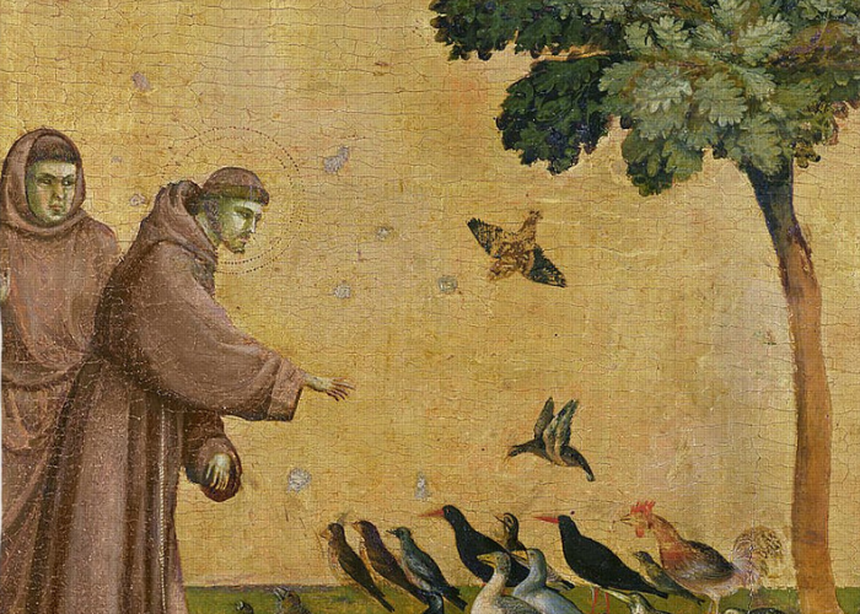

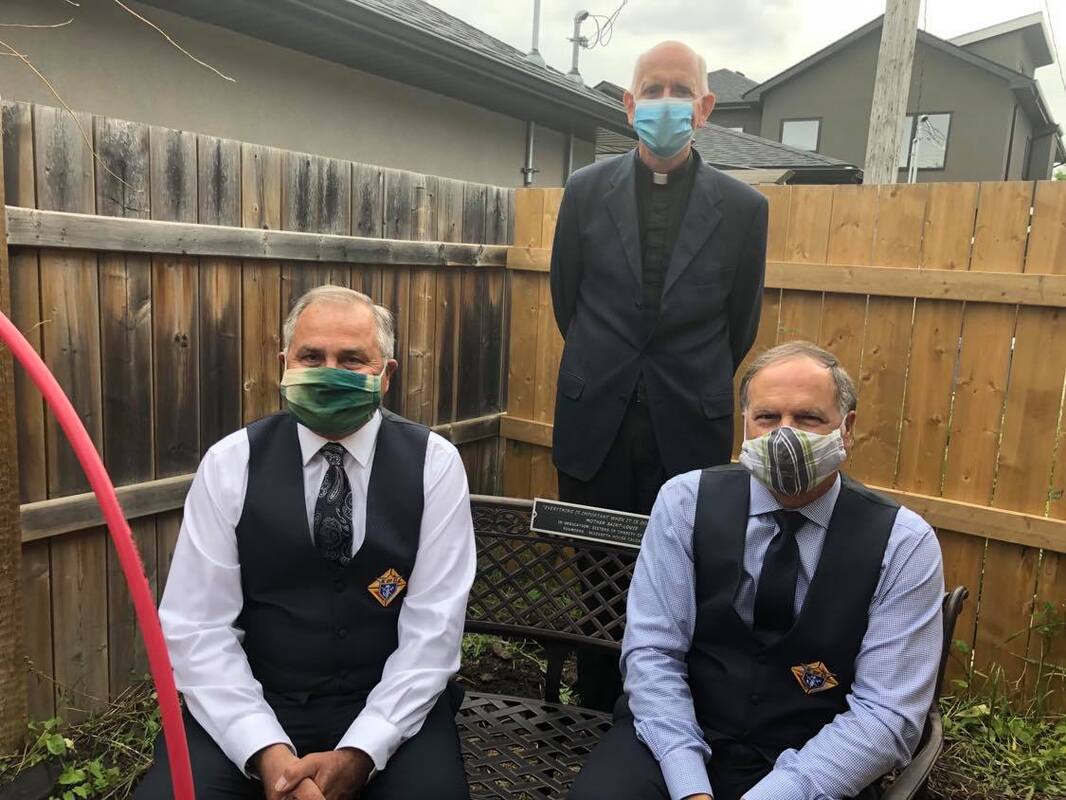
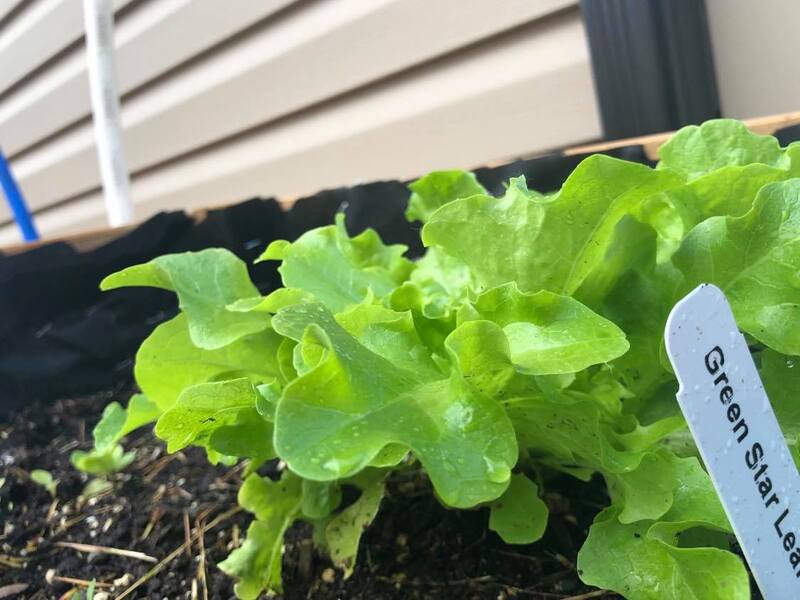

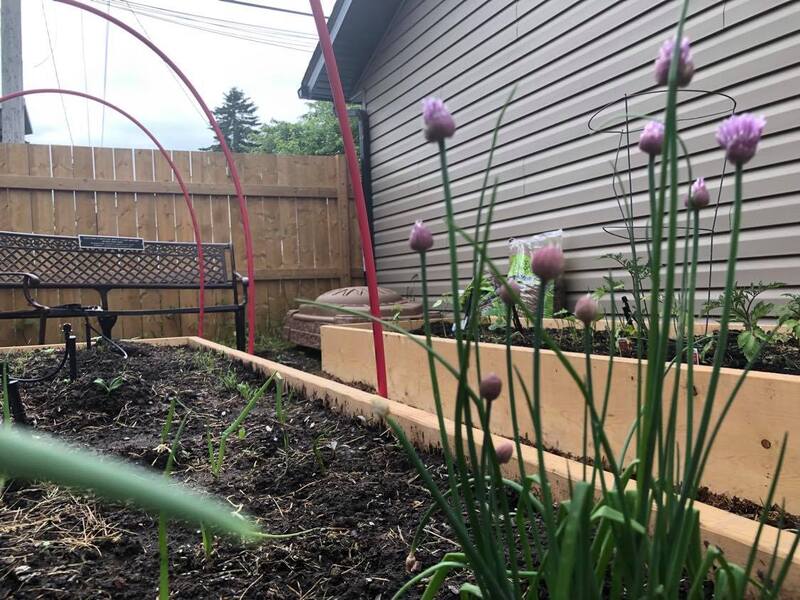
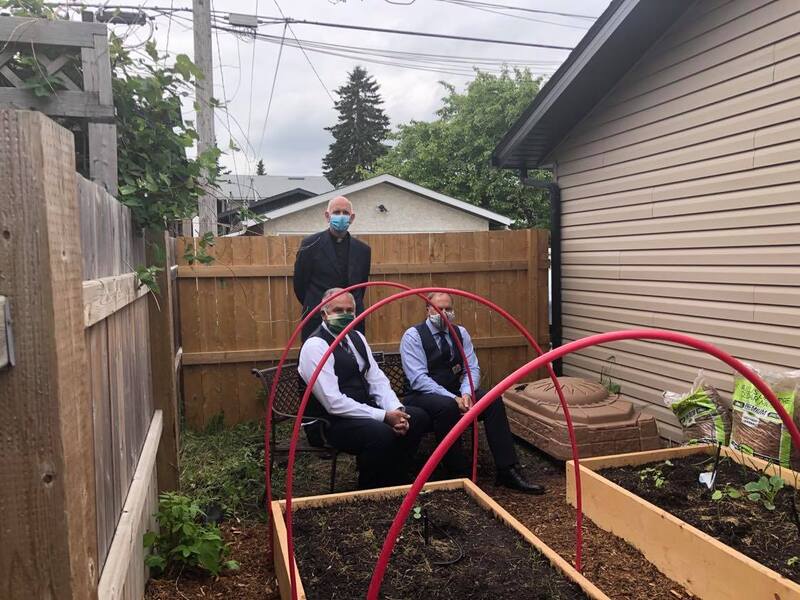

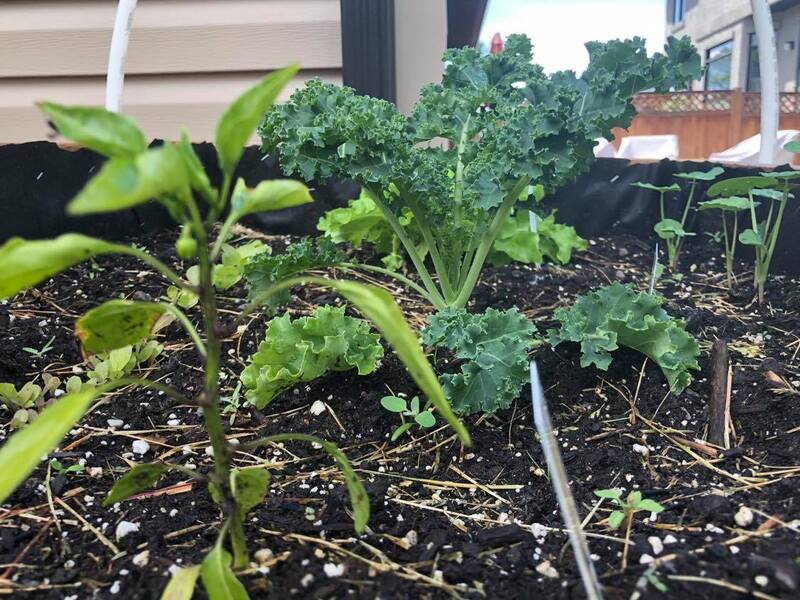
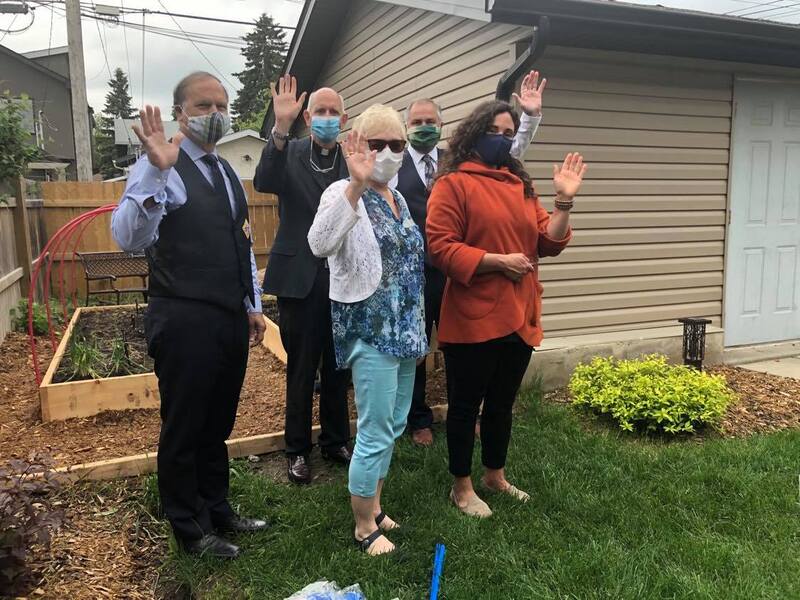
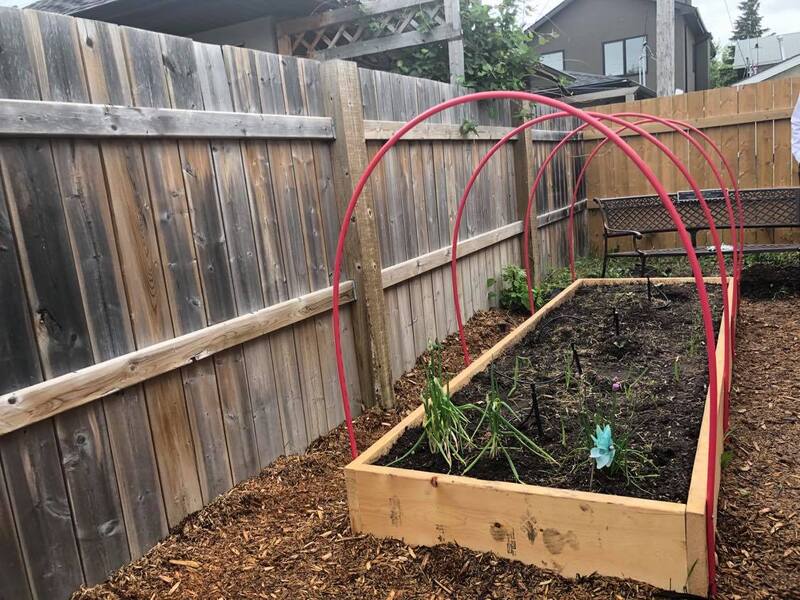

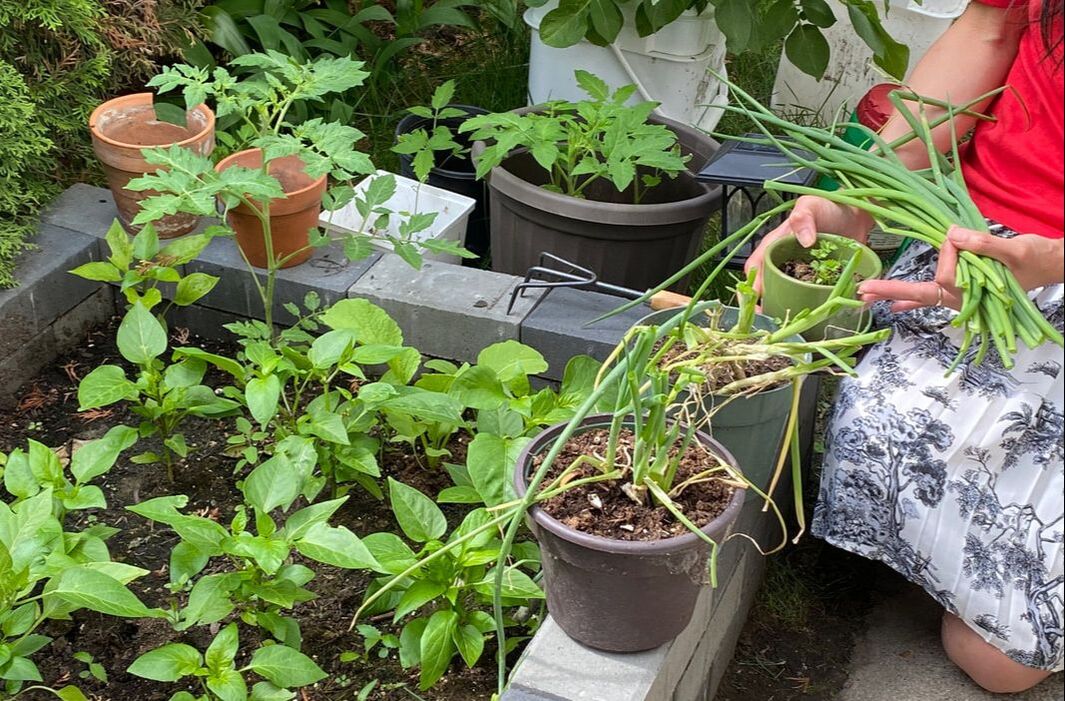
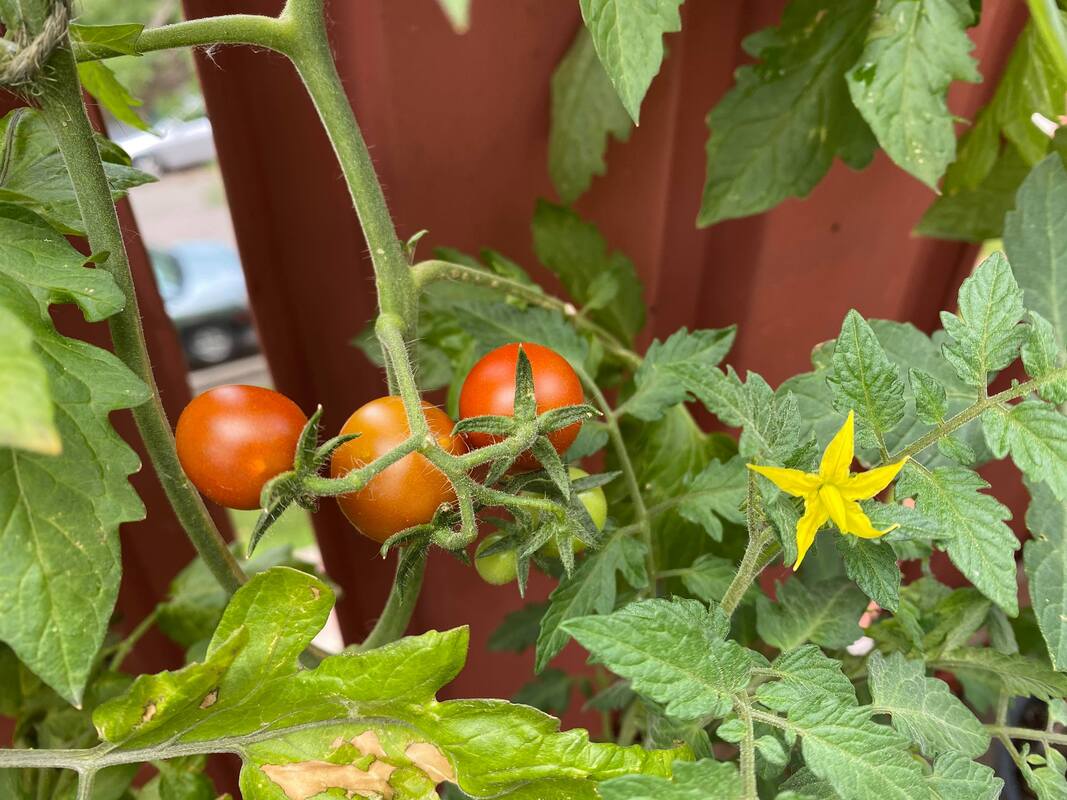
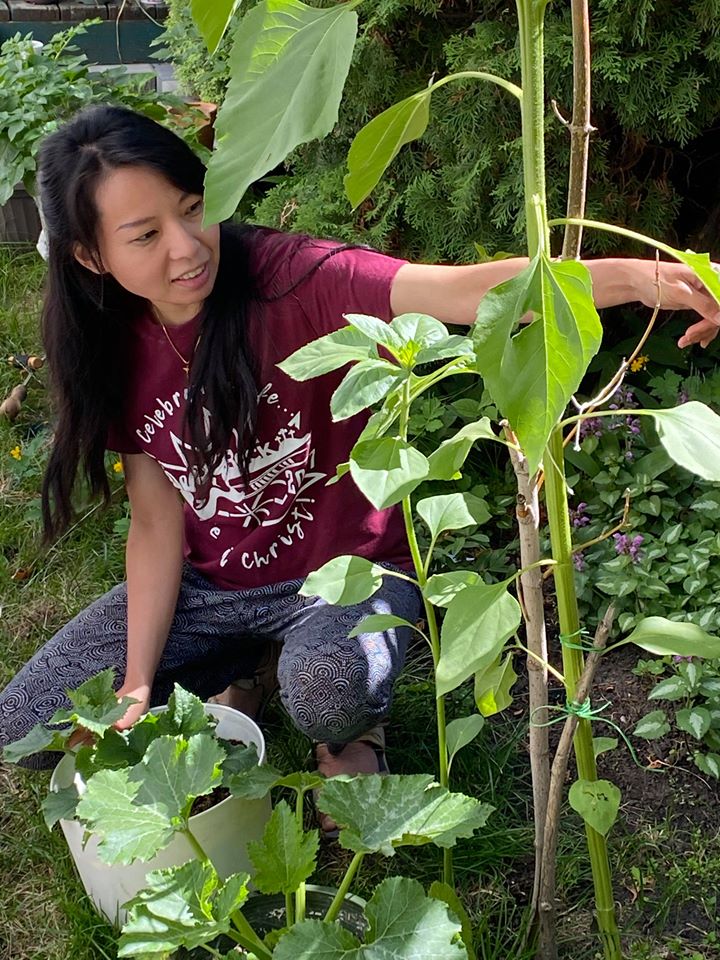
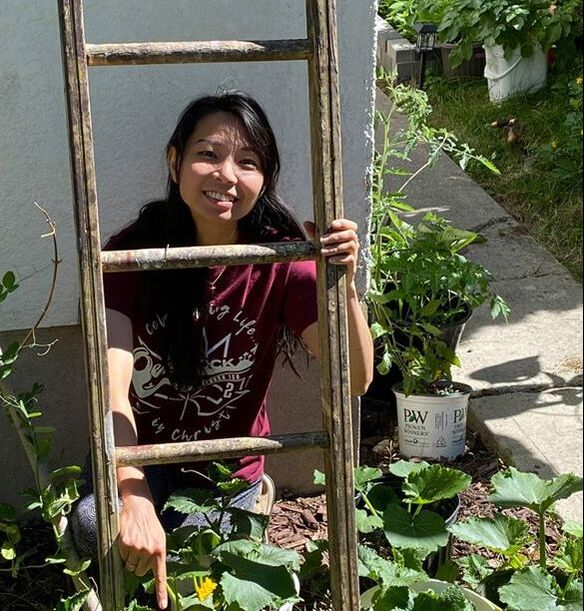
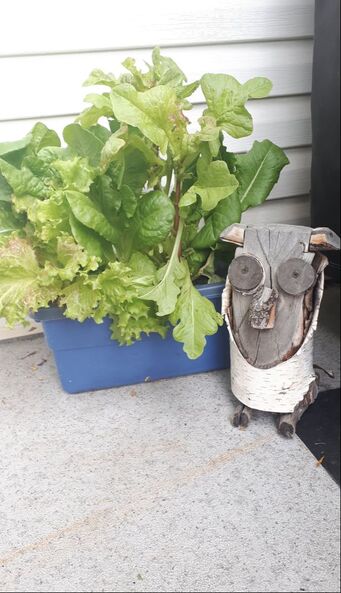
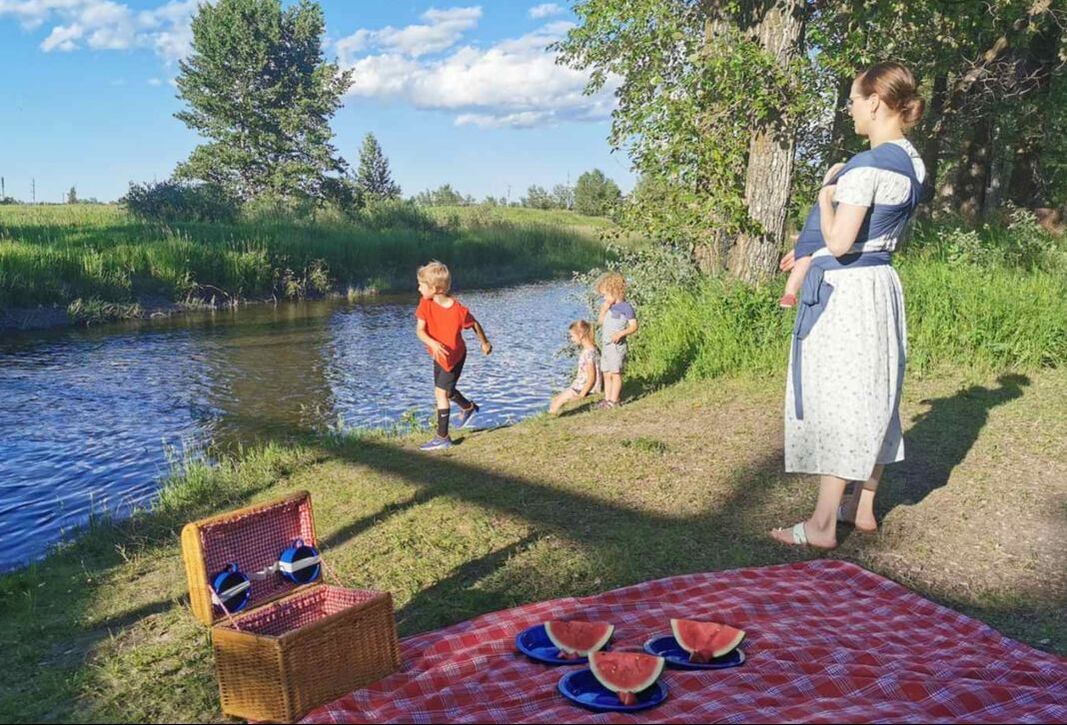
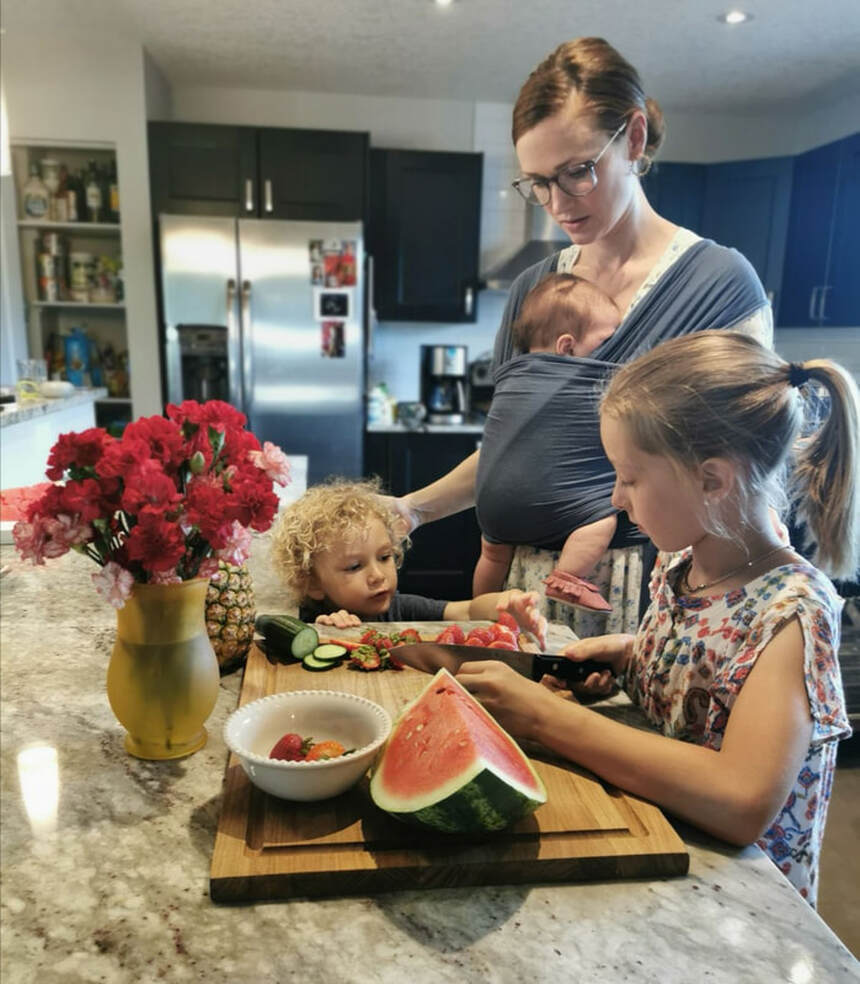
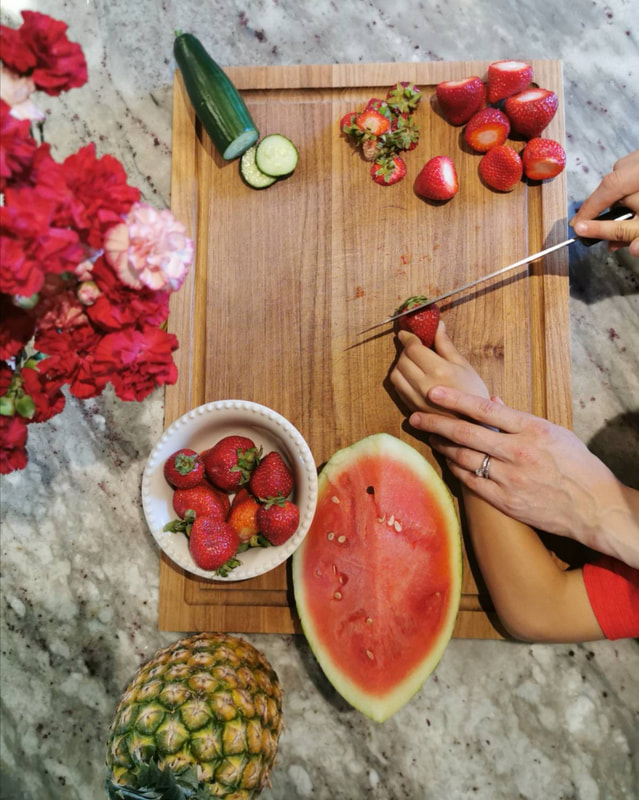
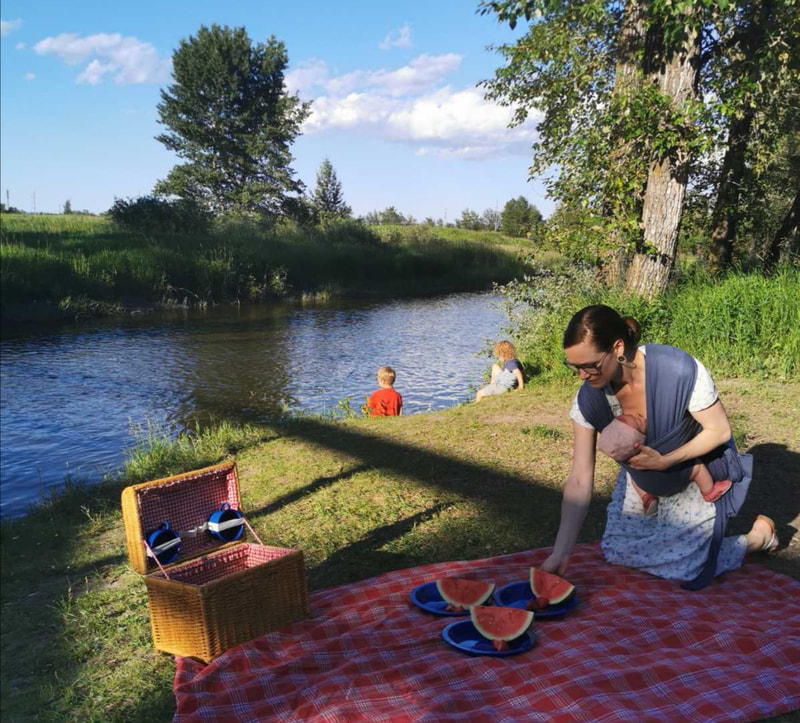
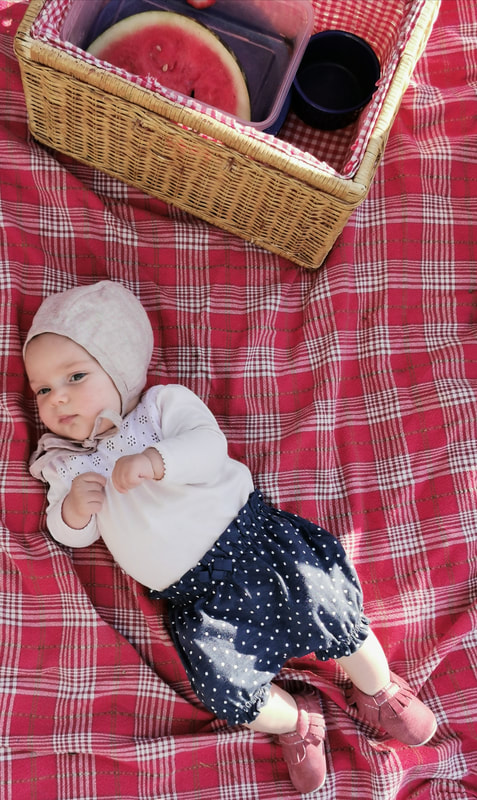
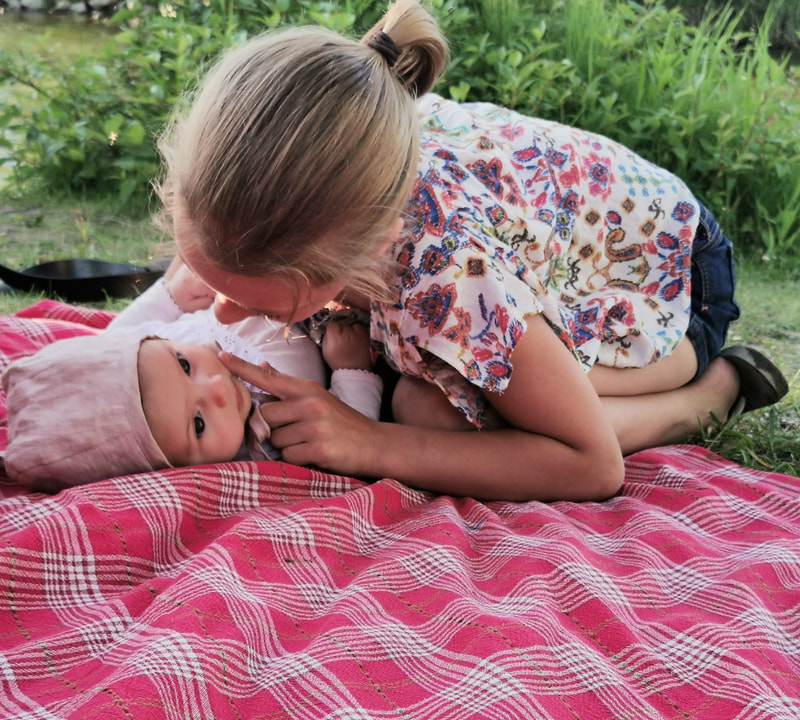

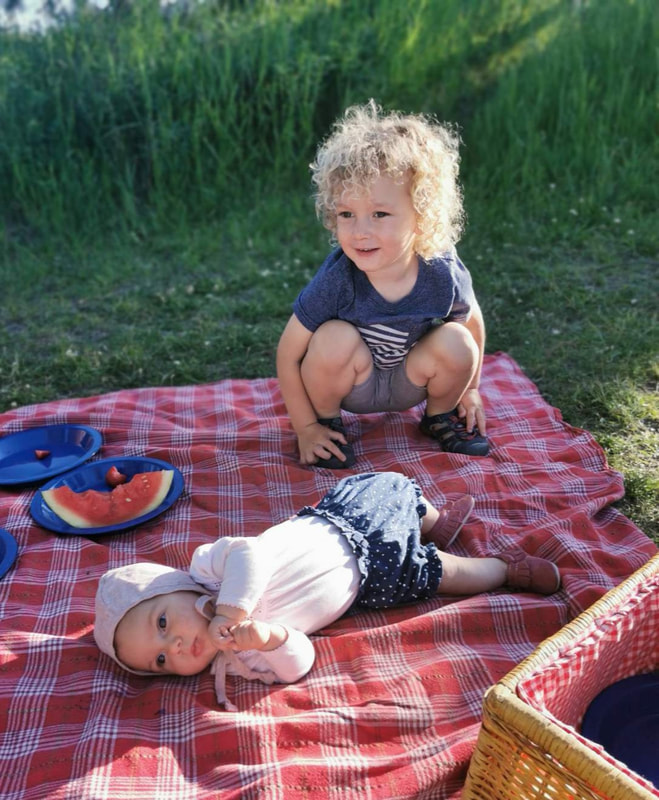
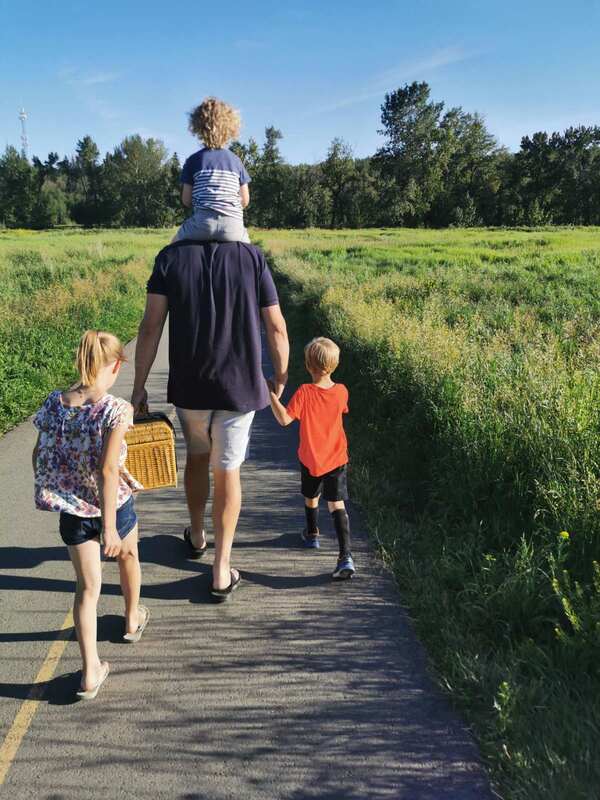

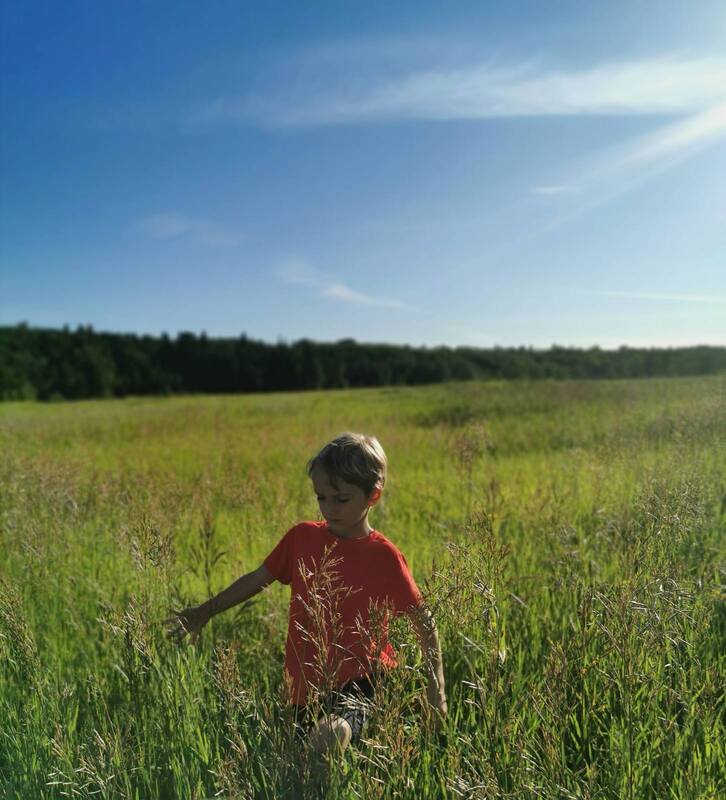
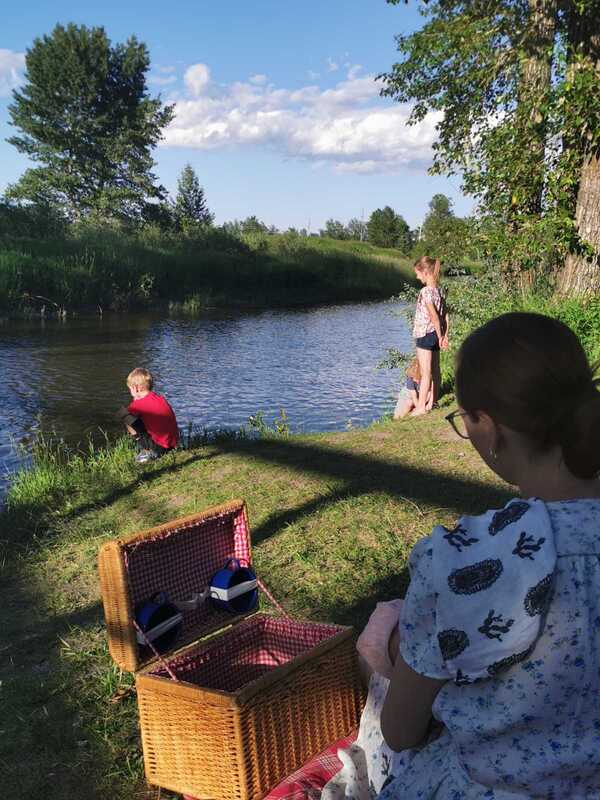
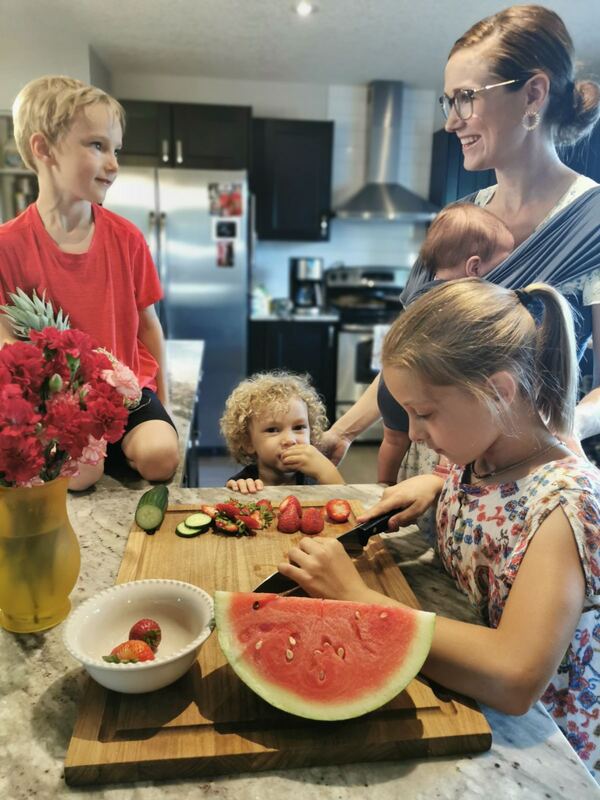

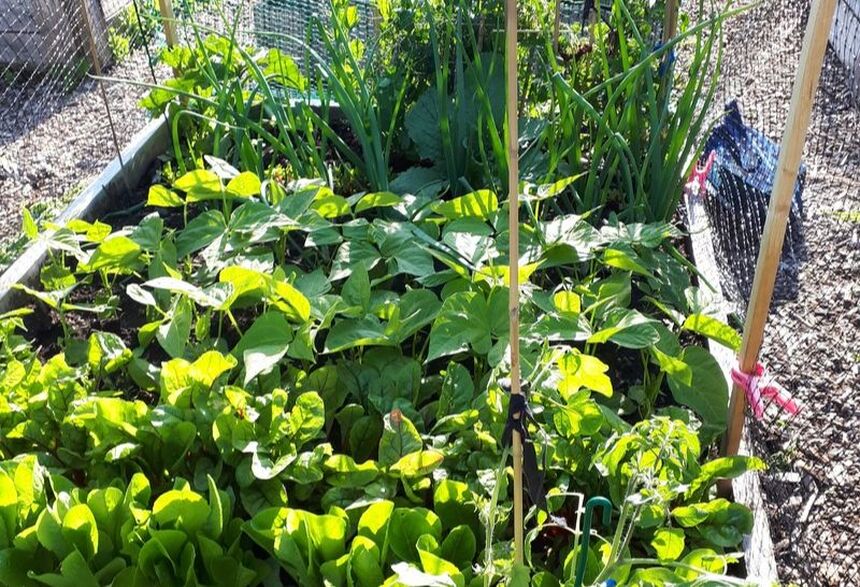
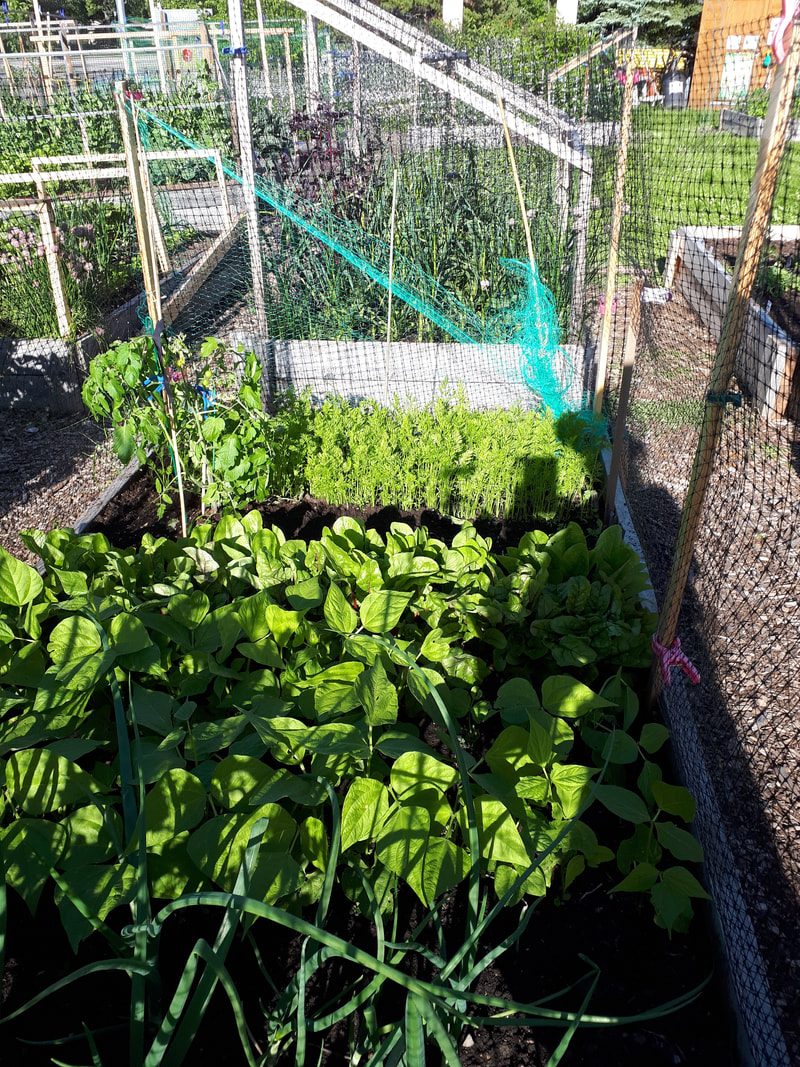
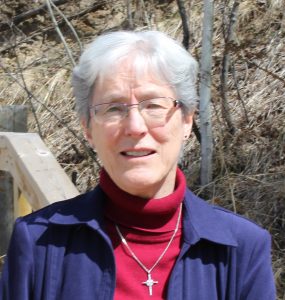
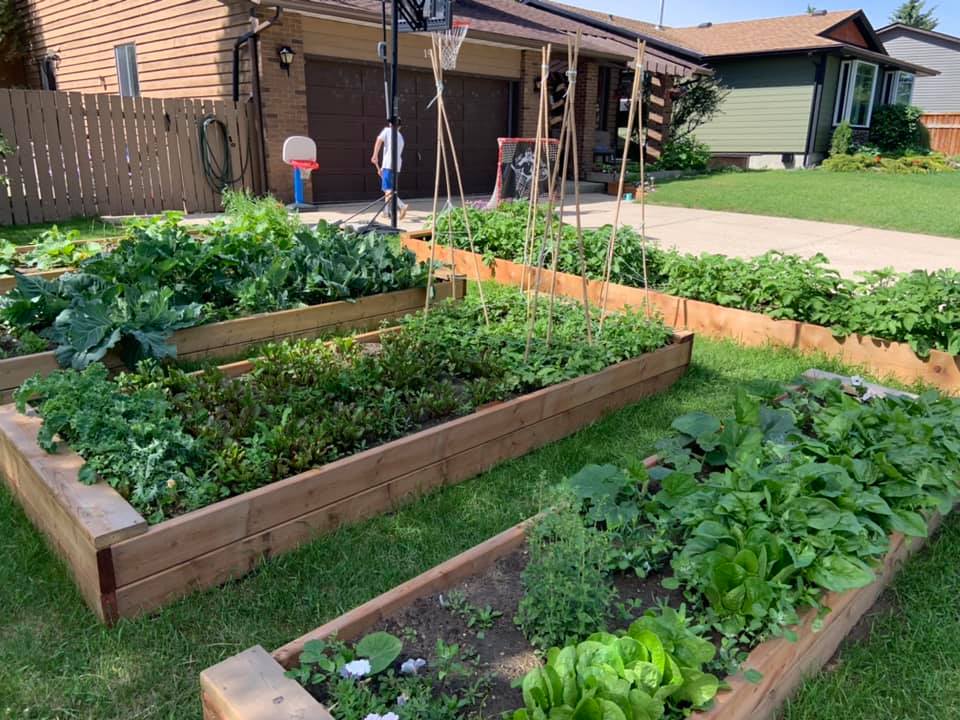
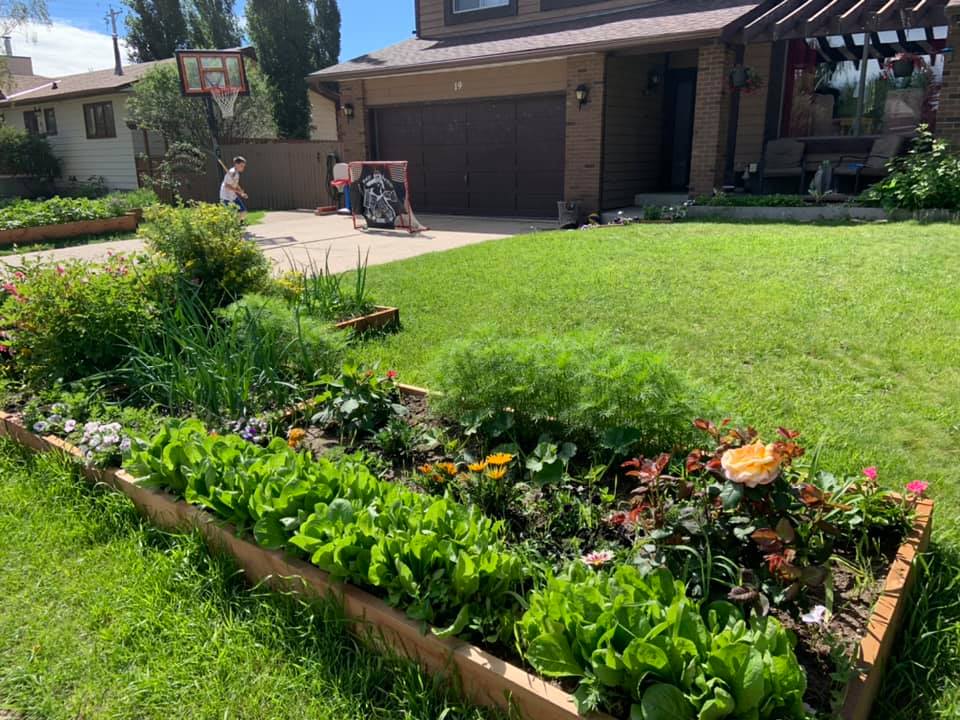
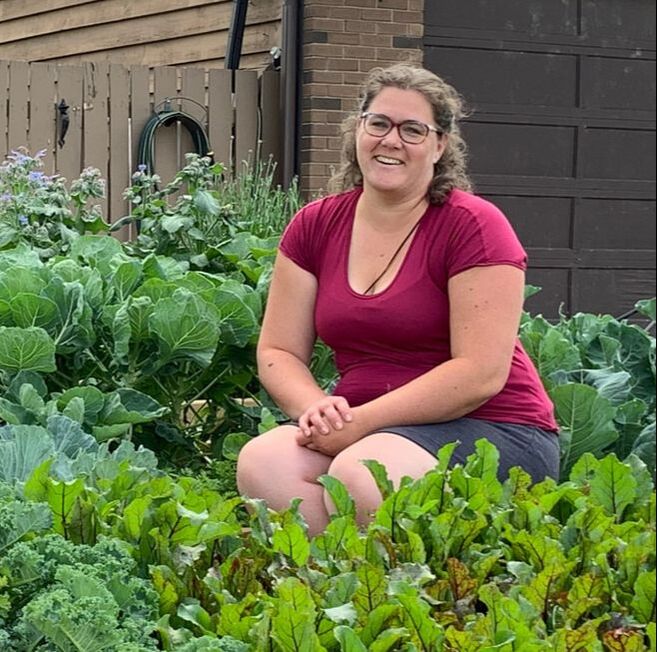
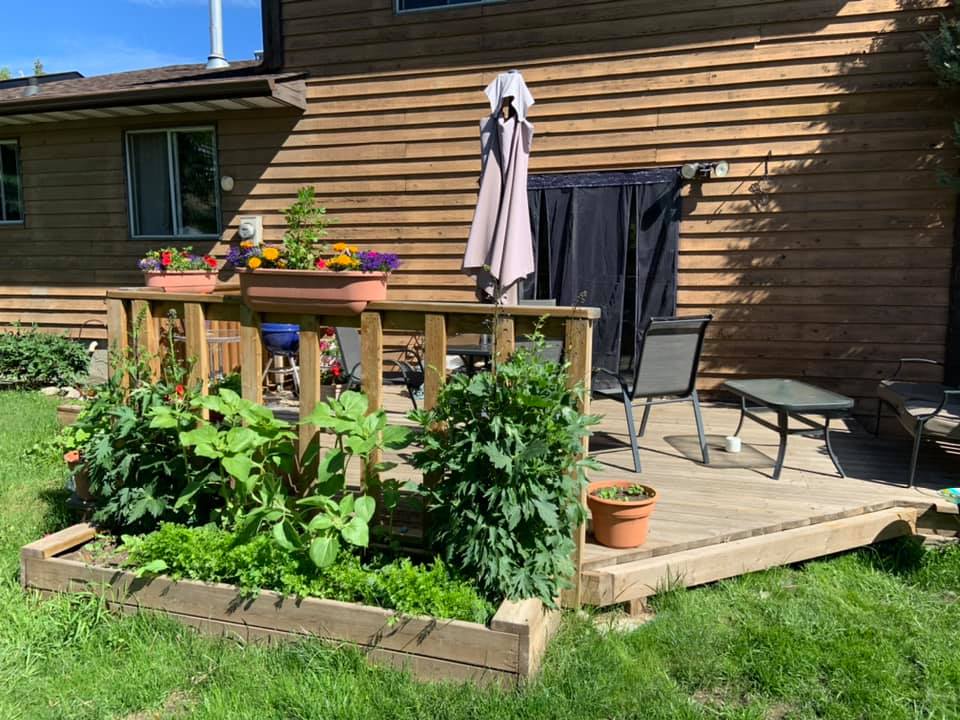
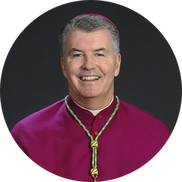
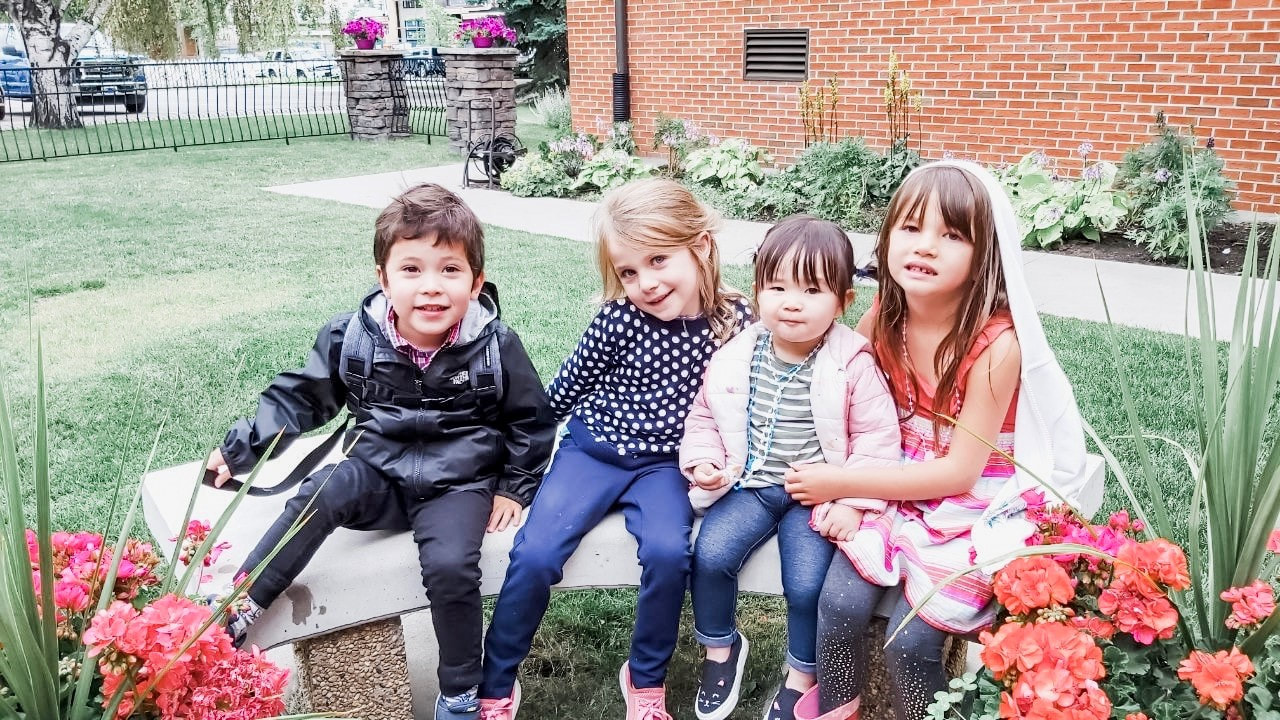
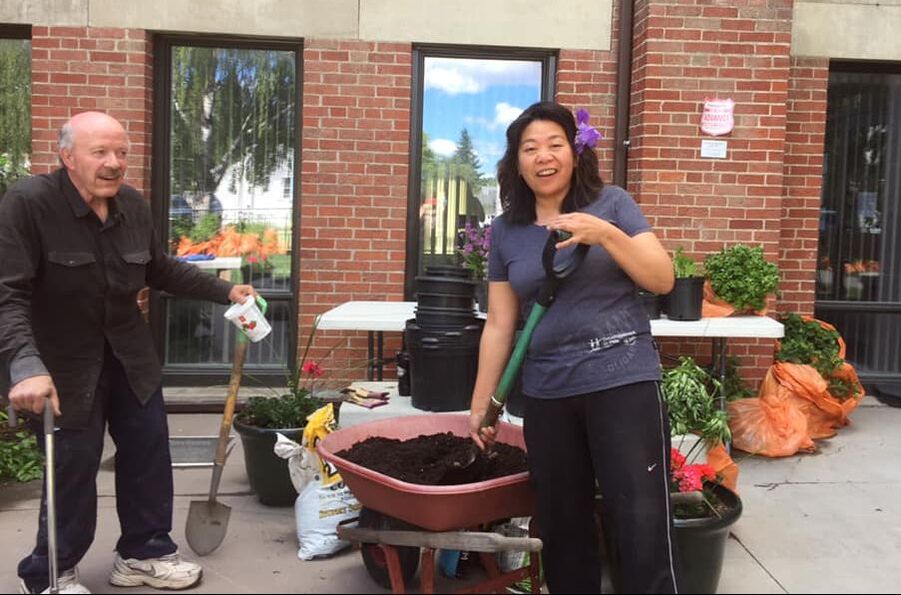
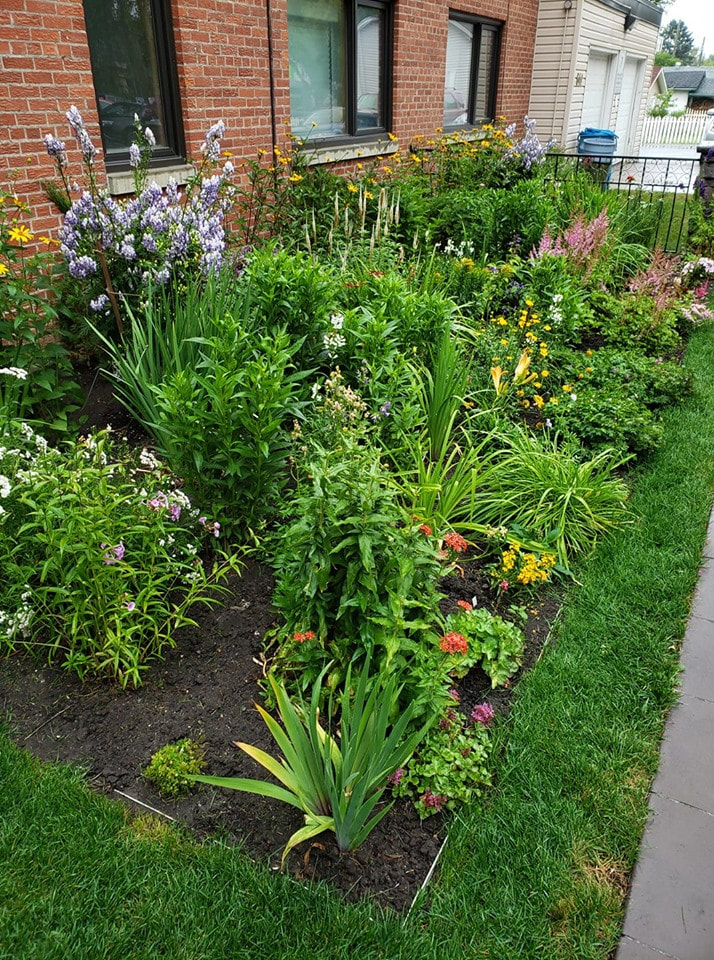
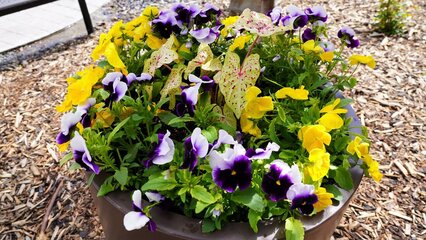
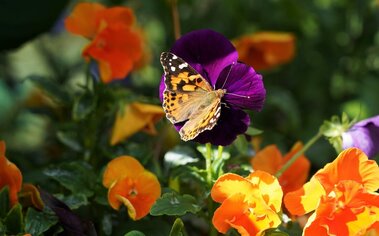
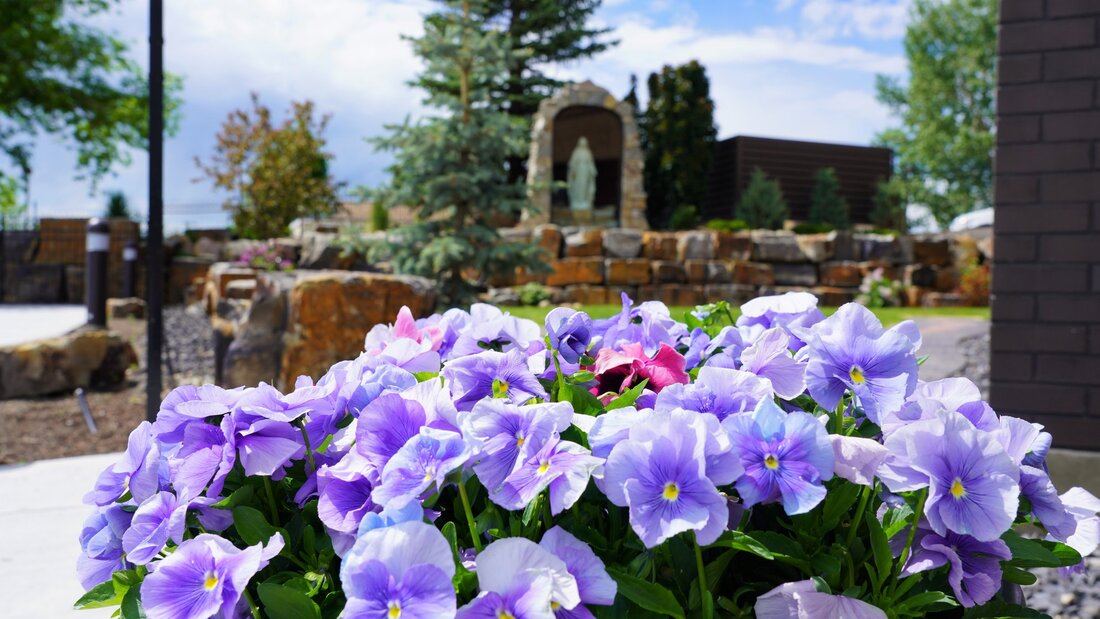
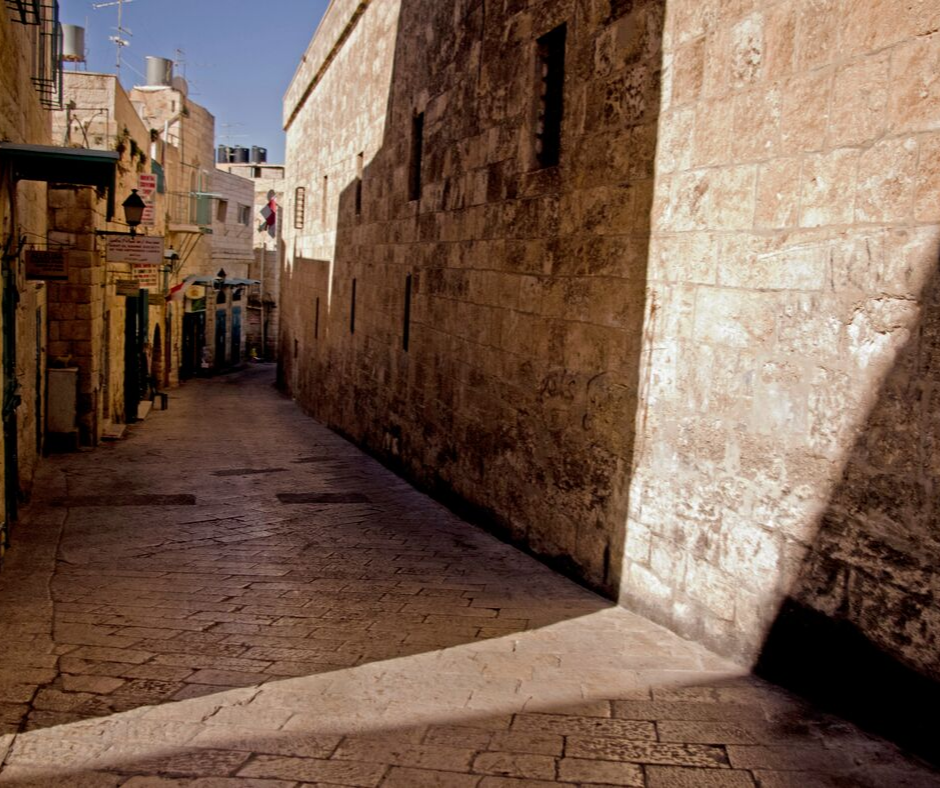

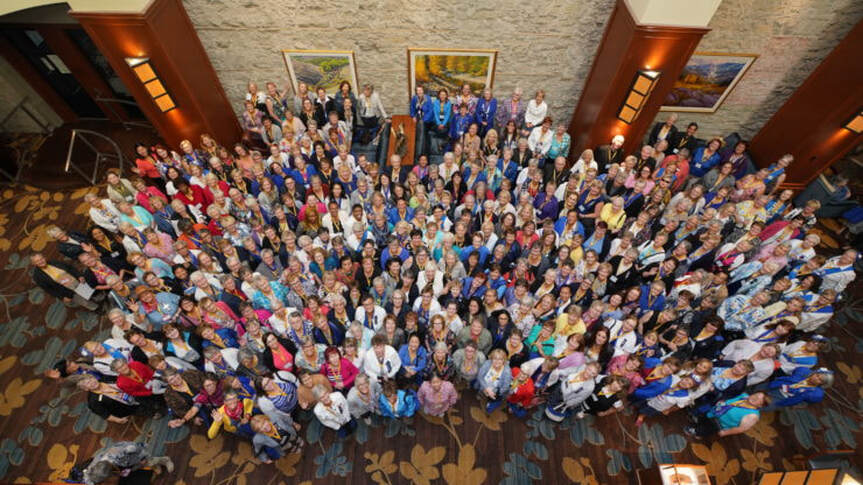
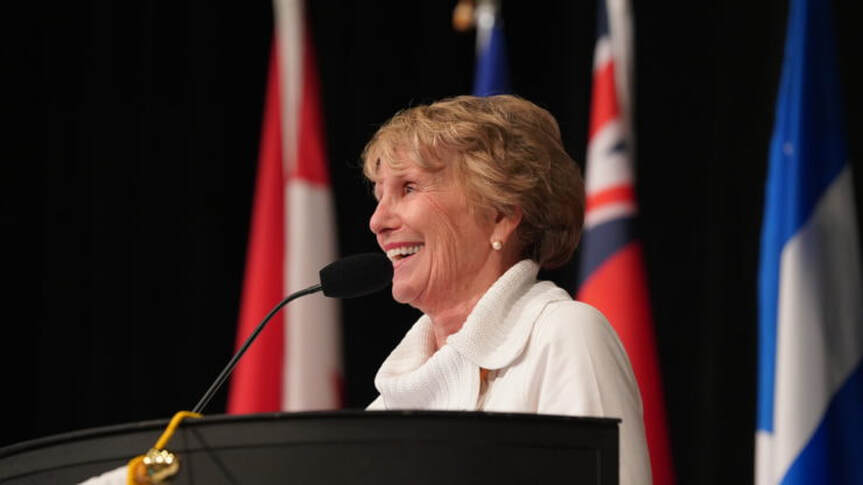
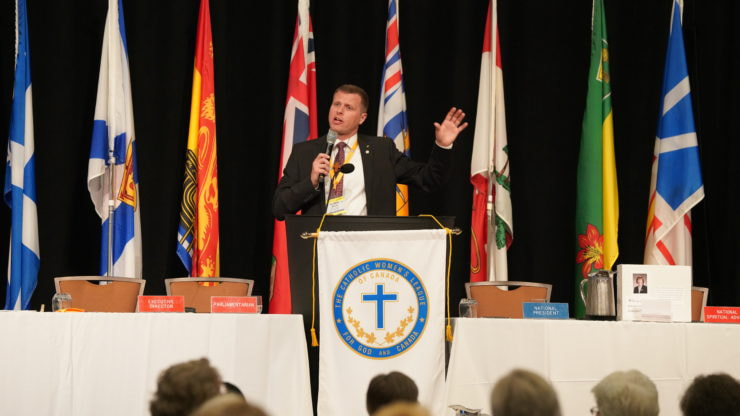
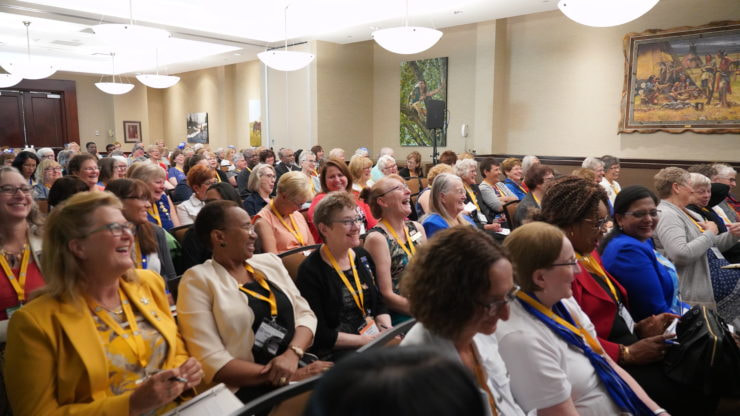
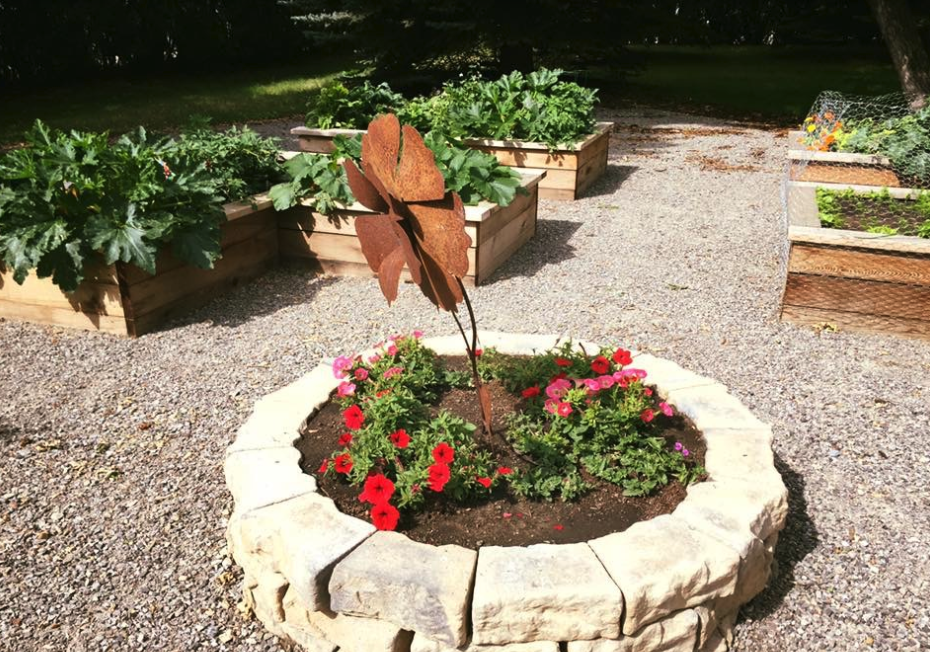
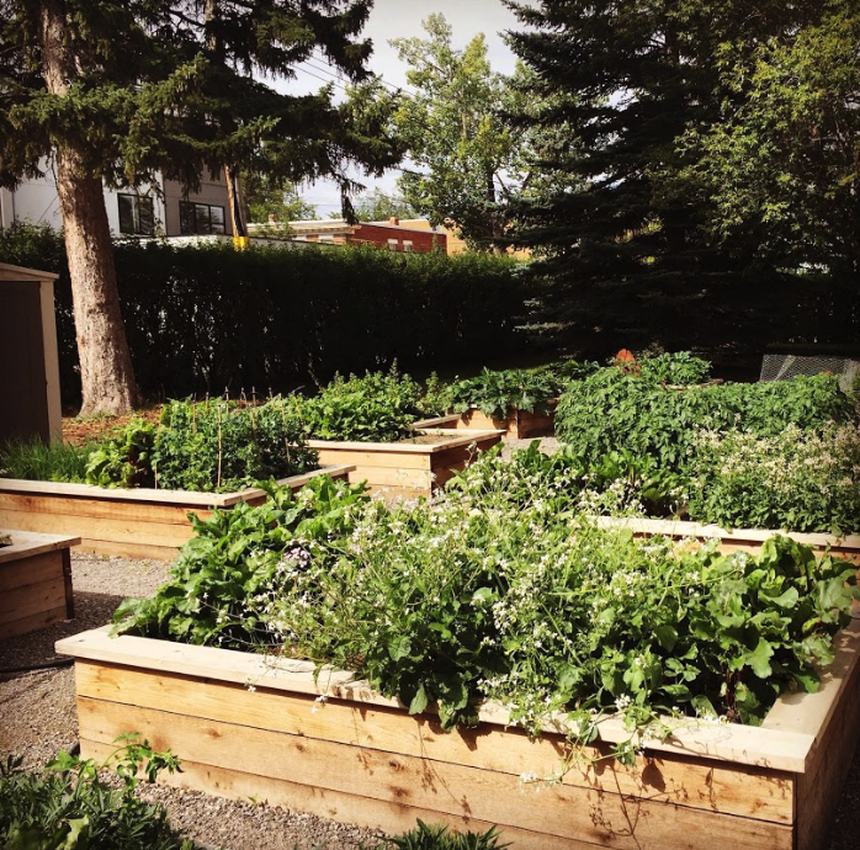
 RSS Feed
RSS Feed